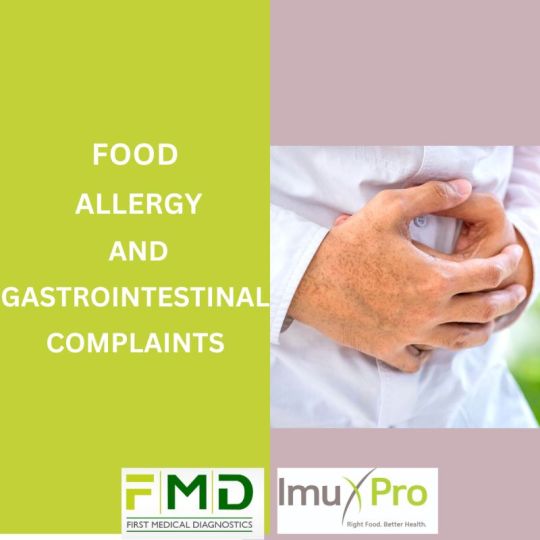#food allergy test
Explore tagged Tumblr posts
Note
My dog is allergic to salmon, chicken, lamb, turkey, duck, and fish mix. Also rice. It's so funny because every source I find says "beef is one of the more common foods that dogs form allergies to" but I guess she's just a trendsetter.
Anyways if you have any recommendations for beef food that doesn't have rice I'm all ears :)
That is highly unlikely. How was that diagnosed? Did you run a food trial that avoided each of those ingredients exclusively for 6 to 8 weeks and then put them back on a food containing those items and the symptoms returned? If not, know that's the only way that food allergies can be accurately diagnosed. Blood and hair tests are completely inaccurate.
Your best bet is a hydrolyzed protein diet if the pet is truly allergic to all of the above. Your vet will have told you this if you completed any testing with them.
13 notes
·
View notes
Text
The Unspoken Social Ostrization of a Restricted Diet
Support for The Difficult One at the dinner party
Folks with dietary restrictions know the feeling of dread sitting at the dinner table for a celebration, holiday, or social gathering. There’s the factual truth that you might have to bring safe food, eat beforehand, or ask the cook a lot of questions. That stuff adds up on its own, trust. However, aside from the logistical inconveniences, there’s the watching eyes of people who have never felt fear or anxiety eating out or eating another cook’s meal. It happens to me almost every time I eat out or go to a gathering, or even just show up at work. Food is a social activity connected to tradition, family, community, and connection. When your relationship with food is strained or unique, you feel it emotionally and socially as well as physically. Let's talk about it. I'll talk a bit about my experiences and how everyone in situations like this can learn to adjust.
Understandably, when it doesn’t affect you, and you don’t have to spend time thinking about it, its hard to understand something unfamiliar. I can’t say I was very conscious of dietary restrictions before I started my elimination diet, even when my own mom was gluten free and encouraging me to do the same. We have genetic problems in our family that were just enough cause for me to try being gluten free. We found out about this when I was pretty young, about 11. My mom has been gluten free since then. I didn’t try until I was about 15-16, and even then it was on and off for a bit before I really stuck to it. I’m 22 now, and have been gluten free among other things for a good few years now.
Especially as a child, though, I wasn’t very sympathetic to dietary restrictions. I didn’t want my mom or anyone else with allergies to be sick, but I felt a lot of anger and fear about restricting my diet. I didn’t want to learn or think about it because I didn’t want that to be my life. Bread is good, and everyone knows that. I’m older now and I understand why my mom and myself have to have a different diet than other people. It’s hard when you’re in middle school and you feel so sick all the time and the supposed solution involves missing out on fun parts of childhood though. There were cakes and pizzas and cookies and I was supposed to turn them away. I hated the idea of that. A lot of people do- especially kids. A lot of sensitivities can affect your mood, and it’s already hard to understand your big feelings as a kid. It’s important to remember that when dealing with dietary restrictions in kids. I recently spoke to a gluten free mom about how her son didn’t want to be gluten free. He was 12 at the time, the same age I was when the idea was first introduced to me. We talked about those big feelings, and I explained how I wasn’t ready at that age to restrict my diet, and the more people pushed me, the less I wanted to do it. He was in the same position I was in where these food things weren’t killing him, but they were making him sick. I told her about how I came around on my own when I got tired of being sick. I’m not a mother and I don’t claim to have parenting tricks or anything, I just wanted to share my perspective because I understood where that kid was coming from. It doesn’t sound glamorous when people start talking about bringing alternative treats to birthday parties. It was a good conversation that I think of fondly. Part of the connecting experience of food is understanding other people’s perspectives. Many a mother and child relationship are strained by food things, and we should always strive to close the gap. Being a kid and having feelings about food is a whole beast that could be discussed later though.
My point is I understood at that age what the social implications were of being different, even if I didn’t have the words for it. Yes, I wanted the cupcakes. I also didn’t want to have to say no, explain myself, and be left out of a group experience. Children and adults alike can be upset by this. I think it’s normal, and something that takes some getting used to.
Things are different for me now. I am gluten, dairy, egg, and soy free (and that’s the paraphrased list I tell people when asked. Theres about 15 more items I can’t eat or can’t eat very often). I was 16 when I was allergy tested, and shortly after that I committed to my new diet. Since doing so, my life has changed in so many ways. I have a lot more good days and less anxiety surrounding eating now, but there’s still hard days.
I am a very social person, and enjoy going out and connecting with people. Most people do enjoy those things. Now, though, going out to dinner is a task. It’s not necessarily a chore (I still want to be invited to dinner guys) but it means I need to do a few things to ensure I am safe, cared for, and healthy. I try to do all these things without disturbing others, but its hard when most restaurants aren’t accommodating to my allergies. Getting invited somewhere and having follow up questions and restrictions can make people feel controlled, policed, and stifled. I understand it’s not easy for anyone involved. I’ll talk about some of the solutions I have for eating in groups successfully in a bit, but I want to touch more on what goes on with the people around you.
It’s not reasonable to ask people to drastically change their plans to accommodate someone else, generally speaking. I get that. Some people will accommodate, some people won’t. It’s the kind thing in most situations to slightly inconvenience yourself to make someone else feel welcome, and it’s what I believe in. That doesn’t change the fact that some people will never do that. In my teen years especially I experienced so much shyness, embarrassment, and anxiety when I would have to ask for accommodations. I was angry a lot of the time and felt like my family and friends didn’t care how hard it was for me to be involved. To be fair, I had some friends that were less than helpful, but my family and select friends that have stood the test of time have always been helpful and conscious. I know that’s more than a lot of people ever get. My family and friends have made mistakes that made me sick, but with time it becomes much less of a risk. Both parties had a lot to learn, and I navigate my restrictions much better than I used to.
I am so blessed to have a rich community of people who love me and care to know what I need to be nourished and happy. I’ve spent a long time building this community and I am so grateful. Never forget the people in your life that stop to think of you and your health. There will always be people out there who don’t understand and will not be sensitive or conscious of your safety. I used to hold a lot of anger for those people but I choose to let it go now. It’s not always easy, and it doesn’t have to come naturally, but I am much happier focusing on the beautiful people in my life who are dedicated to our relationship and connection.
Let’s talk about how it can be easier. I don’t want to spend too much time talking about the ways people will make me feel uncomfortable, but it’s important to identify the behavior. If you’re trying to support someone in your life, it’s good to know what to avoid. Most of what I’m about to call out isn’t malicious, and it’s ok if you’ve made mistakes. What’s important is that you’re willing to move on, learn, and be open minded.
Things to avoid doing when dealing with dietary restriction in a group setting:
Offering unsolicitated advice
“Have you tried this for that? My sister’s coworker had a lot of success with it”
“I read somewhere that that doesn’t work”
You might be in a situation where having a conversation about someone’s condition is appropriate but don’t come out the gates offering advice. When you live in your body usually you can tell what’s going on with it the best.
Emphasizing or gawking at the circumstances
“How do you live like that? I could never do that!”
“Wow what CAN you eat?”
“Oh you poor poor thing”
“I would kill myself/die if I couldn’t eat that!” (Yes, someone has said this to me on more than one occasion)
Generally just making a big deal out of it can make someone feel embarrassed and upset. Sure, you would kill yourself if you couldn’t eat chocolate but this is my life and I’m actively trying to make the best of it. It’s insensitive to say things like that when it’s my every day reality. Do you think I should kill myself?
Asking invasive questions
“What even happens if you eat that?”
“Why can’t you eat that?”
Most people don’t want to talk about violently shitting themselves, throwing up, or migraines at a dinner party. Some people might want to share that but it’s rude to ask.
Brushing off safety information
“Oh, you’ll be fine it only has a little”
“I’m sure it’s fine” or “”it’s probably okay right?”
“I thought it would be okay just this once”
If someone has brought up a concern, don’t disregard it without saying anything. Always be upfront about the ingredients in something.
Pushing the topic after being given an explanation or answer
“You can’t eat this? Oh please have this or this or this instead”
Repeatedly apologizing or asking questions when told no thank you after being offered something. I can usually tell if I need to not eat anything at an event to be safe, and while I appreciate that people want to find solutions, offering me anything and everything is not the solution when I politely decline something. It’s just tedious and I have to refuse more and more things.
Making it about yourself
“I would die”
“I would hate that”
“I could never do that”
This has a lot of overlap in the other bulletpoints, but generally avoid bringing your feelings and thoughts about someone else’s experiences when they didn’t ask. It’s cool to relate to others, but it’s not cool to insert yourself into someone’s narrative. You can think to yourself that you would never want to do that, but again, its my reality and I’m making the best of it.
That was more than I thought it would be. Every example is something someone has said to me before though in some shape or form. It might seem like a lot, and honestly it kind of is. I’ve had years to compile examples. A lot of people haven’t had to think about life with dietary restrictions, so they don’t know how to be sensitive. That’s okay! What’s not okay is being content with this behavior and continuing when you can learn how to better support others. With a bit of thought it’s not hard to be more conscientious.
I’ve split up these things to do into two parts. Check it out. There will be a lot of mention of my wonderful best friend and my boyfriend, who are both actively involved in my life and therefore eat with me a lot.
Things you can do as someone with dietary needs to make eating out easier
Know the name of the game
Are you going somewhere with options for you? Find the restaurants menu, ask the host, and prepare for a situation where you might need to fill in the gaps. If you were invited as a plus one, see if the inviter can find out what the situation/menu is
Set your expectations for success. Do not assume there will be something and be disappointed. This leads into my next point;
Be prepared
If you know you will need to, eat before or bring prepared food. Most of this stuff is just the logistics but it can help a social situation go much more smoothly.
Check the menu at restaurants and plan for any adjustments to item menus and if they will be possible. Call ahead if you have questions for restaurants. I almost always call to see if their fries are gluten-free.
Something I do is make a plan to pick up something afterward if going to a party or dinner where I know there will be no or little accommodation. My boyfriend and I do this often and I will eat a snack at the event, and then we pick something up on the way home
Make a list of safe restaurants and foods to present to a group if asked about accommodations. “Here are a few options that are safe for me if you would consider any of these”
Be okay with being different
It doesn’t have to be a bad thing. My roommate and I eat out together quite often and when we go to pick up food sometimes we just stop at 2 places.
People are always going to misunderstand or judge you. What matters is your health and safety.
Sometimes people will not want to make accommodations or there will not be any. Take pride in taking care of yourself and respecting your needs. This might even mean leaving a situation, but could just mean accepting the situation and making alternative plans.
Be prepared to reject
For me, one of the hardest parts of these occasions is saying no. This gets its own bullet point because it’s hard for a lot of people.
“No thank you, but I appreciate the thought” this is my go-to, because it lets people know I know they thought of me and want to give me a treat or a meal, but that I can’t accept it and it’s okay. It might look more like “I appreciate you thinking of me” as well.
People might make it hard to say no. I have mildly poisoned myself to avoid saying no but it is not worth it. Respect your body and stick to your guns. It doesn’t hurt anyone to not consume something, but it can hurt you to consume something you shouldn’t. If people don’t understand that it’s not personal, it is not your responsibility to appease them.
Things you can do to support someone with dietary needs
Ask how you can help
“How can I help?”
Sometimes, it’s really as simple as that. The answer is often simple. Maybe a different mexican restaurant nearby has better accommodations, maybe you can just stop by a safe restaurant on the way home. It doesn’t have to be a lot of work. People just want to be considered, and just knowing you’re in their corner is helpful. Sometimes the answer is "Thank you, but don't worry about it". Then it might be best not to make a big deal out of it.
Write things down
If someone tells you a list of items or rules they need to follow, just jot it down. It’s very common for people to forget or ask repeatedly and while this is fine for an aquaintence, you can show support to a close friend, partner, or family member by not asking them to repeat themselves. You only have to do this once to have the information forever, so why not?
Respect boundaries
If someone wants to opt out of eating something or going to an event due to restrictions, strive to understand why. Try imagining yourself in their shoes. Sometimes, you just don’t want to do something. That’s okay.
Take no for an answer
If you offer someone something and they decline, it’s okay. Your homemade cookies are a very nice thought and if you didn’t know someone couldn’t eat them, that’s okay. There’s no need to apologize, especially repeatedly. For me personally, I prefer when people don’t make a big deal out of the situation. I appreciate when people want to give me things, and I understand why I can’t accept them. It’s nobody’s fault.
A personal preference of mine is that people do not bake or cook for me. Occasionally my close family, boyfriend, and best friend will, but they have spent a long time working to understand the rules I operate under. I have had a lot of people offer to make things to accommodate me for events and such, but I prefer to make it myself. It’s not personal, I just have a laundry list of needs and I have accidentally been hurt by myself and my family. It’s just a lot of things and I don’t like explaining the intricacies of it when a mistake could still be made or cross-contamination could still happen in an unfamiliar kitchen. No hard feelings!
I think that’s about it for my first post. I’m having a hard day in my body today and I want to reach out to people like me. Please interact I would be happy to chat or answer questions!
#dietary restrictions#dietary choices#dietaryhealth#celiac disease#food allergies#food allergy test#restricted diet#eating diary#tw eating issues#food#cooking
8 notes
·
View notes
Text
So uh. Health update?
I have a dentist appointment today to see about impacted wisdom teeth removal, which my insurance cant be used and I will have to be billed for. But I need them out, my gums, cheek and jaw are swollen and in so much pain. They are doing imaging today, and we will go from there.
I’ve been having pain in my right pec/breast area, so I told my gyno, and she found a mass in the leftover breast tissue from my double mastectomy, and a mass in my armpit. Both on the right side. So i have an ultrasound coming up on the 27th for that.
I had food allergy testing done earlier this week because of the stomach issues I’ve had for a few years, and that should be back within the next week or so. So hopefully by the beginning of next month when I get groceries I will know if I need to make alterations to my diet.
And I think thats about it. Will update when i know more, especially after the ultrasound.
1 note
·
View note
Text

#diagnostic laboratory near me#best pathology lab near me#best diagnostic centre#diagnostic clinic near me#near by diagnostic centre#Master Body Checkup#Food Allergy test#Full Body Checkup#Diagnostic centers in jaipur#path laboratory near me#high esr symptoms#pus cells in urine#lipid profile test price#price of lipid profile test#blood test near me#royal diagnostic centre online reports#Royal Diagnostic Centre Jaipur Contact Number#royal lab
3 notes
·
View notes
Text
Also! Listen to your kids when they don’t like a food! Because sometimes they just don’t like it, and sometimes they think tomatoes are spicy and are wondering why you keep making them eat it.
Source: someone who now has to navigate a kiddo’s whole damn list of allergies, and is now pretty damn guilty about sneaking mustard powder in the breading when the kiddo did not like mustard for unspecified reasons and it turns out said kiddo is allergic to mustard.
PSA: tomatoes are not spicy. Tomatoes and tomato products should not be spicy. Pizza sauce isn’t inherently spicy. Tomato-based pasta sauce is not spicy. Ketchup is NOT spicy.
If tomatoes are spicy, you have an allergy to tomatoes.
This announcement brought to you by my almost 29-year-old husband learning for the first time in his 2.8 decades of putting food products into his mouth that spaghetti and saucy pizza aren’t spicy foods
91K notes
·
View notes
Text

Why Should You Take a Food Allergy Test or Food Intolerance Test?
Discover the root cause of your symptoms with a Food Allergy Test or Food Intolerance Test from Call My Doctor. Get accurate insights and personalized dietary recommendations, all from the comfort of your home. Contact us at +971 4 549 0700 to book your test! https://lavoyeusesur.org/why-should-you-take-a-food-allergy-test-or-food-intolerance-test/
0 notes
Text
Disability is not a punishment, but I think the world would be genuinely improved if every person involved in writing or regulating ingredient labels was mysteriously inflicted with at least one food allergy falling under each of the following categories: "natural flavors," "modified food starch," "artificial flavors," "spices," and "color." Down with ingredient labels so vague that they defeat the entire fucking point.
#i'm sure there's categories i'm forgetting so please add on actually#but these are the ones that make me and family members want to tear our hair out#allergyposting#disability#ableism#my allergist & i mutually agreed i should get tested for an annatto allergy#which is what's used to make a lot of foods yellow/orange.#do you know what a lot of yellow and orange foods say on the label? “COLOR ADDED”
9K notes
·
View notes
Text

Experience the Food & Inhalants Allergy Test from DarDoc to know your allergic reaction to multiple types of food and inhalants, starting from AED 799.
We are available anywhere in the UAE! 🇦🇪
0 notes
Text
SMS Labs: Accurate Food Allergy Testing for Peace of Mind
At SMS Labs, we understand the importance of accurate food allergy testing for your health and well-being. Our state-of-the-art facilities and experienced team ensure precise and reliable results, giving you peace of mind when it comes to managing your dietary needs.

Using advanced methods such as skin prick tests, blood tests, and oral food challenges, we provide comprehensive evaluations to identify potential food allergies. Trust SMS Labs for thorough and professional food allergy testing, empowering you to make informed decisions about your diet and lifestyle.
0 notes
Text
FOOD ALLERGY AND GASTROINTESTINAL COMPLAINTS
The GI tract, which elongates from the mouth to the anus, is affected by gastrointestinal illnesses. The term "gastrointestinal illnesses" refers to conditions where the function and appearance of the colon are abnormal.Crohn's disease (CD) and Irritable Bowel Syndrome (IBS) are two gastrointestinal conditions. Crohn's disease is a chronic inflammatory disease that most frequently affects the colon's beginning and the small intestine's end. However, it can affect any portion of the digestive system. CD can be painful and incapacitating, similar to ulcerative colitis. Irritable bowel syndrome (IBS) is extremely uncomfortable and stressful; it resembles being paralysed for some people.

0 notes
Text

ImuPro is a Food Allergy Test that evaluates immunoglobulin G (IgG) antibody levels in response to certain foods. The immune system produces IgG antibodies in reaction to foreign invaders such as bacteria and viruses. They can, however, be created in reaction to meals.
The ImuPro test is a blood test that measures the levels of IgG antibodies to 270 different foods. IgG antibodies are produced by the immune system in response to exposure to a foreign substance, such as a food protein. However, not all foods that trigger IgG antibodies cause symptoms. The ImuPro test can help identify foods that may be causing symptoms in people with food sensitivities. . If the results of the ImuPro test show that you have elevated or highly elevated levels of IgG antibodies to certain foods, you should talk to your doctor about how to manage your symptoms.
#food#food allergies#food intolerance#nutrition#health & fitness#wellness#healthcare#food allergy test#skin treatment#skin allergy test#food sensitivities
1 note
·
View note
Text
food allergy test
ImuPro is a food allergy test that evaluates immunoglobulin G (IgG) antibody levels in response to certain foods. The immune system produces IgG antibodies in reaction to foreign invaders such as bacteria and viruses. They can, however, be created in reaction to meals. The ImuPro test is based on the idea that high levels of IgG antibodies to specific foods may suggest a delayed or non-IgE-mediated food allergy. This sort of allergy is thought to induce symptoms such as bloating, diarrhea, headaches, and skin rashes hours or days after consuming the meal. The ImuPro test is available in India in three different versions: ImuPro Screen⁺: This test analyzes 44 common foods.ImuPro Basic: This test analyzes 90 common foods.ImuPro Complete: This test analyzes 270 foods and food additives. To take the ImuPro test, you will need to provide a blood sample. The sample will be sent to a laboratory for analysis. The results of the test will be available in about two weeks. The ImuPro test is not a diagnostic tool for food allergies. It can only indicate whether you may have a delayed food allergy. If you have positive results on the ImuPro test, you should talk to your doctor about further testing and treatment.

0 notes
Text
Food Intolerance Test

The Food Intolerance Test from First Medical Diagnostics is a blood test that measures your body's immune response to certain foods. The test is designed to help identify foods that may be causing you symptoms of food intolerance, such as bloating, gas, diarrhea, and headaches.
The test measures the levels of IgG antibodies in your blood. IgG antibodies are produced by your immune system in response to foreign substances, including food. If you have an intolerance to a particular food, your body will produce higher levels of IgG antibodies to that food.
The Food Intolerance Test is a relatively accurate test, but it is important to note that no test is 100% accurate. The accuracy of the test can also be affected by factors such as your age, your overall health, and the severity of your food intolerance.
The benefits of the Food Intolerance Test include identifying foods that may be causing you symptoms of food intolerance, avoiding those foods, and making dietary changes that can improve your symptoms.
The Food Intolerance Test is a relatively safe test, but there are some risks associated with any blood test, such as bruising and bleeding at the injection site.
1 note
·
View note
Text

Food Intolerance Test
Food intolerance is a common but often misunderstood condition that affects a significant portion of the population. Unlike food allergies, which trigger an immediate immune response, food intolerance reactions are usually delayed and may manifest in various ways. Symptoms can range from mild discomfort to severe gastrointestinal issues, making it essential to identify and manage them effectively.
In this comprehensive guide, we'll delve into the world of food intolerance, exploring its causes, common symptoms, and most importantly, how to identify potential intolerances through a food intolerance test.
What is Food Intolerance?
Food intolerance occurs when the body has difficulty digesting specific foods, leading to a range of symptoms that can appear hours or even days after consuming the offending item. The most common types of food intolerances include lactose intolerance (difficulty digesting lactose found in dairy products), gluten intolerance (sensitivity to gluten proteins found in wheat, barley, and rye), and fructose intolerance (malabsorption of fructose found in fruits and some sweeteners).
Causes of Food Intolerance
Several factors can contribute to the development of food intolerance. Enzyme deficiencies, such as lactase deficiency in lactose intolerance, prevent the proper breakdown of certain compounds in the digestive system. Additionally, some individuals may be sensitive to certain food chemicals, such as histamine or tyramine, which can trigger adverse reactions.
Food intolerances can also be linked to a disrupted gut microbiome, chronic stress, or even previous gastrointestinal infections that have altered the gut's ability to process certain foods.
0 notes
Text
So little thing that I learned recently; under the FDA, drug manufacturers are not required to disclose presence of major allergens in their products. While most medications do not contain gluten-containing ingredients, if you have any food allergy you need to make sure it's on file with your pharmacy, and speak with your pharmacist to find out how they flag for allergens in their system. Sometimes you may need to contact the manufacturer--if so, have the drug NDC (National Drug Code)# on hand, as they often need that to look it up. You can get this information (as well as manufactuer name) from your pharmacy.
#most manufacturers will say they are not made with gluten ingredients but not tested#food allergies#drug allergies#info#celiac disease#celiac#coeliac#this post brought to you by me finding out my beta blocker might have been low key poisoning me over the past year#while it isnt likely and it may be less than 20ppm for some people thats still enough to trigger symptoms or your immune system
624 notes
·
View notes
Text

Come through autumn fit and healthy
Unfortunately, autumn does not always show its beautiful side – the days get shorter and it is often dark, gray, and wet. In autumn, cold viruses are in high season and the number of flu patients also rises steadily – not least because our immune systems are out of practice due to wearing masks. Coronavirus numbers are also on the rise again because people are spending more time indoors.
But you can do a lot yourself to get fit and healthy throughout autumn!
Start boosting your immune system today to be armed against pathogens.
We show you how with the following tips!
Healthy and vitamin rich-diet
The intestines and immune system can be strengthened with fiber, vitamins, minerals, and secondary plant compounds. Many autumn vegetables such as fennel, broccoli, cauliflower, Brussels sprouts, pumpkin, kale, and the rediscovered parsnip contain these important vital substances.
Tip:
Take a look at our blog section. Under the recipes section, you’ll find a lot of autumn recipes that help to boost your immune system!
Stay active even in autumn!
Defy your inner couch potato and stay active even in cold, wet weather – because that’s how you strengthen your immune system. In addition, moderate exercise in the fresh air increases not only the physical but also psychological well-being, especially in autumn.
Use every ray of sunshine
The body needs sunshine to produce vitamin D and the happiness hormone serotonin. Get out in the fresh air as often as possible, because even when the sky is cloudy, the body can produce vitamin D and serotonin.
Drink enough
Autumn marks the start of the heating season – the dry, hot heating air dries out the mucous membranes and thus provides an entry point for germs. In addition, the change of season from outdoors to indoors is strenuous for the body and causes the circulation to ride a roller coaster.
Drink at least 2 liters of fluid a day, preferably (mineral) water, unsweetened teas, or thin juice spritzers.
Start a healthy and active autumn today!
Healthy gut – Healthy body
Do you suffer from gastrointestinal complaints, headaches and migraines, skin problems, attention deficits, obesity and other chronic complaints. A chronic inflammation due to a delayed food allergy might be the reason. Delayed food allergies can be detected with the ImuPro blood test.
#health#fmdindia#neurospot#gutmicrobiome#pantum#foodintolerancetest#healthylifestyle#guthealthawareness#imuproindia#gut microbiome#food allergy test#foodintolerance#food intolerance test#fmdpartners
1 note
·
View note